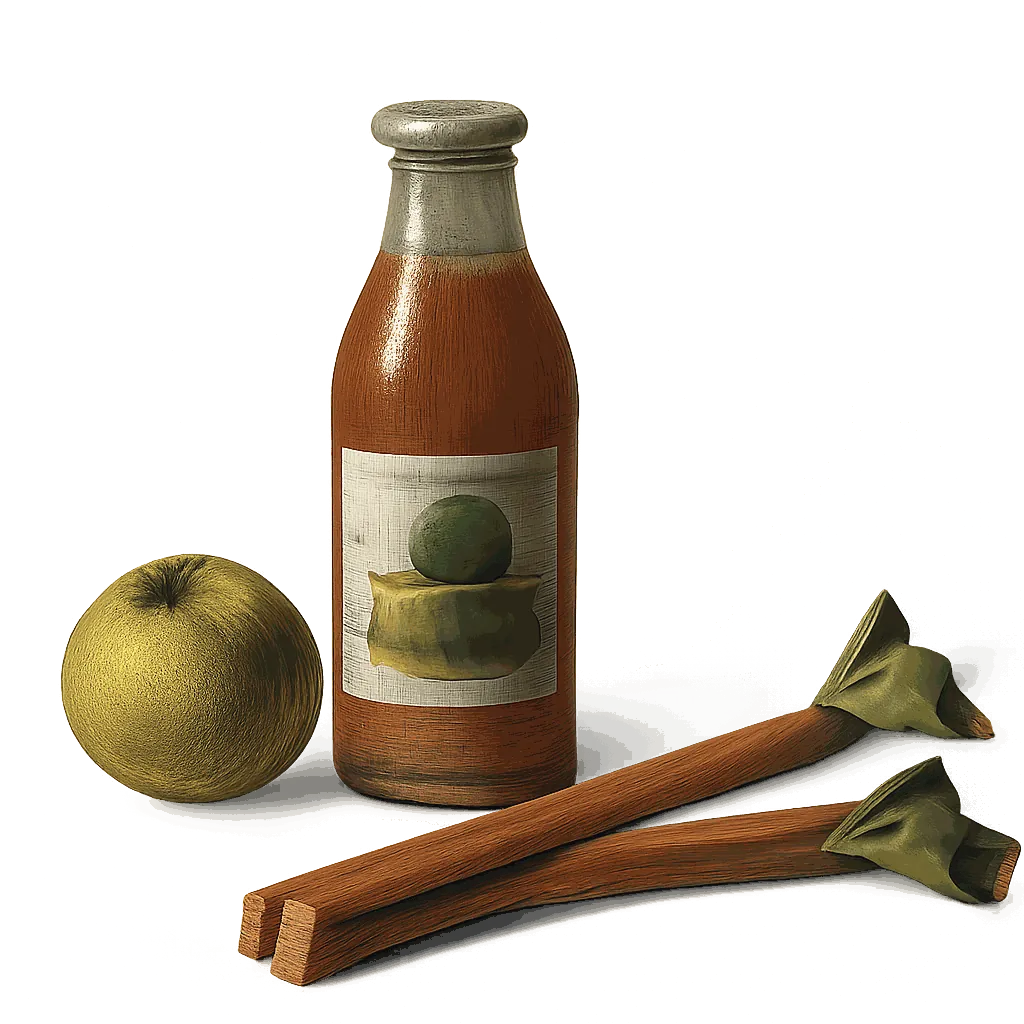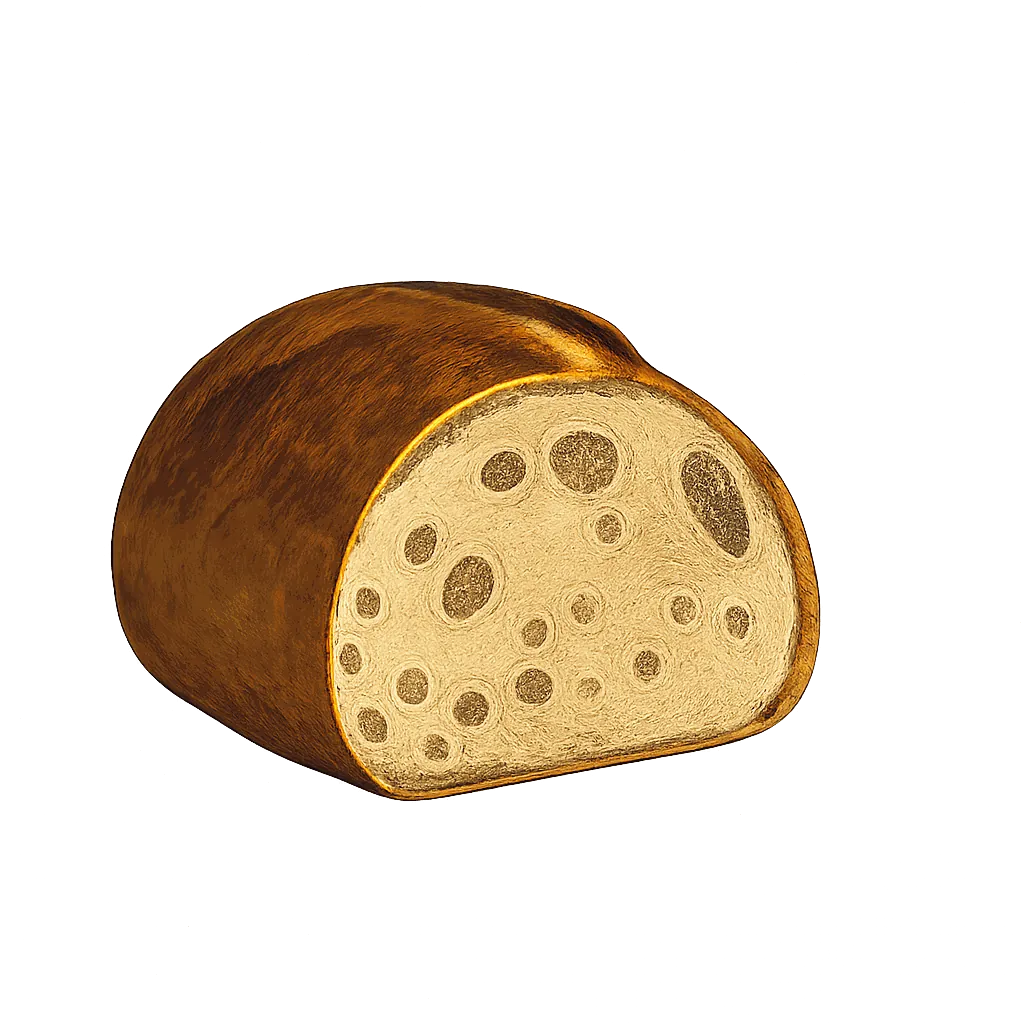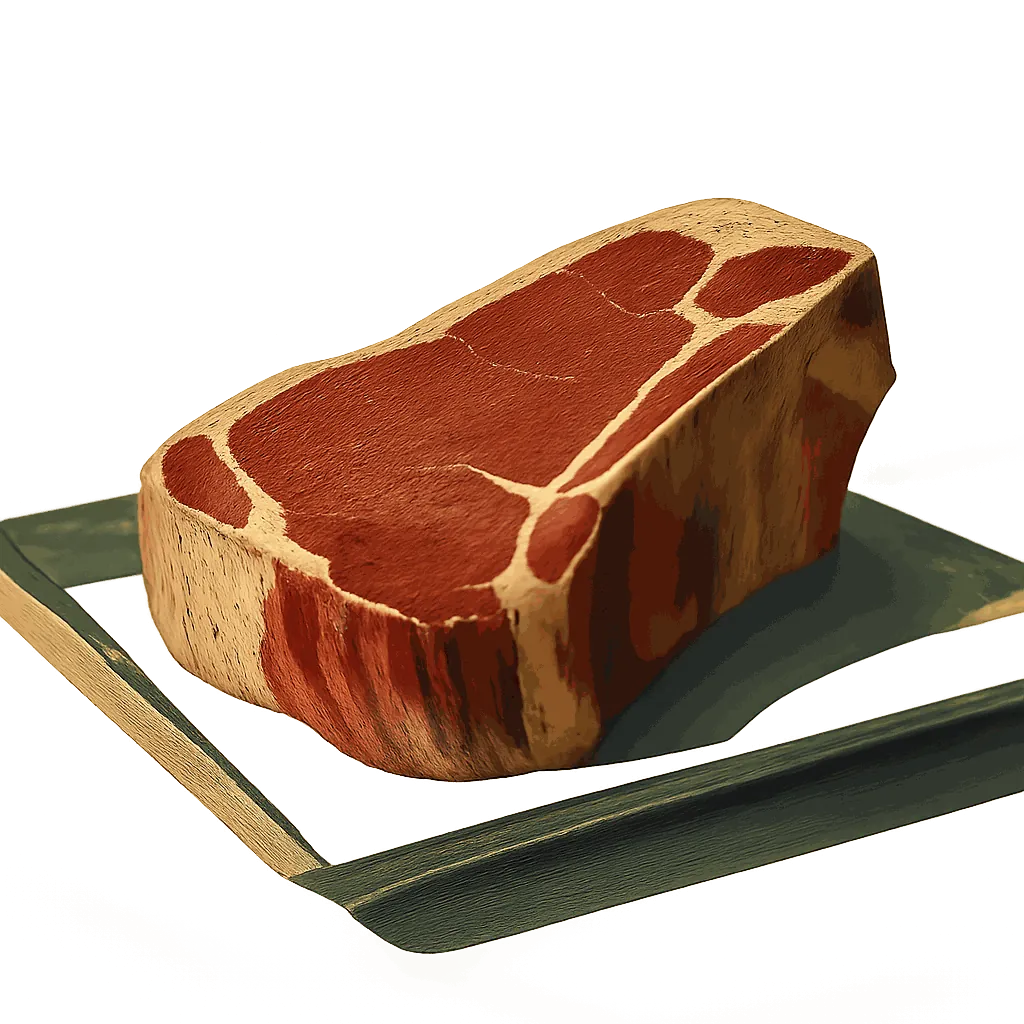Perfect Pairings & Recipes for
Bordeaux Rosé

Unlock the perfect flavour pairings for Bordeaux rosé according to data science. Explore unique recipes and discover the hidden mathematics of flavour.
Bordeaux rosé immediately conjures the evocative embrace of raspberry and the bracing kiss of peach, but beneath its bitterness lies a complex symphony of subtle flavour notes, such as apricot, rose, and hints of hibiscus. These are the notes that lend it such remarkable, resonant depth. Understanding how these layered flavours work together is the secret to unlocking truly exceptional pairings.
To map these harmonies, we analysed thousands of ingredients, breaking each one down across 150 flavour dimensions, identifying which notes complement and contrast. Our exploration reveals, for instance, how the fresh, green cis-3-hexen-1-ol in parsley can carry Bordeaux rosé, and how thyme's balsam notes forge a beautiful synergy with its bright sweetness.
Flavour Profile Of Bordeaux Rosé Across 150 Dimensions Of Flavour
Flavour wheel chart showing the dominant flavour notes of Bordeaux Rosé: Raspberry, Peach, Apricot, Plum, Blossom, Hibiscus, Rose, Pear, Grapefruit, Limestone, Melon, Saline
An ingredient's flavour stems from its core characteristics, such as floral, acidic, or nectarous, combined with layers of subtle flavour notes (outer bars). For a balanced dish, pair ingredients with a variety of core flavours, and choose complementary aroma notes for harmony.
The Secret Language of Flavour
To understand exactly which flavours harmonise, we compiled a database of over 50,000 ingredient pairings commonly used in cooking. We then analysed these pairings, identifying the specific flavour notes that frequently appear together.
The Flavours That Harmonise With Raspberry Notes
Strength of Association Between Flavours
The flavours most associated with raspberry notes are: Bovine, Ferrous, Gamey, Limestone, Buttery, Cinnamon, Balsam, Hazelnut, Clove, Almond, Bay leaf, Neroli, Sage, Vanilla, Resin.
Our analysis reveals a strong connection between raspberry and balsam flavours. Since Bordeaux rosé has a distinct berry-like flavour, try pairing it with the balsam flavours of thyme.
The recipe below provides inspiration for pairing Bordeaux rosé with thyme.
Harmonious Flavours Of Bordeaux Rosé
Just as our analysis indicated that raspberry and beefy flavours are harmonious, we can identify the full profile of flavours that harmonise with each of the flavours present in Bordeaux rosé. For instance, the peachy notes of Bordeaux rosé are strongly associated with koji and milky notes.
The aromas complementary to the various aromas of Bordeaux rosé can be seen highlighted in the pink bars below.
Flavour Profile Of Bordeaux Rosé And Its Complementary Flavour Notes
Flavour wheel chart showing the dominant flavour notes of Bordeaux Rosé: Raspberry, Peach, Apricot, Plum, Blossom, Hibiscus, Rose, Pear, Grapefruit, Limestone, Melon, Saline
Matching Flavour Profiles
The flavour profile of parsley offers many of the aromas complementary to Bordeaux rosé, including grassy and leafy aromas. Because the flavour profile of parsley has many of the of the features that are complementary to Bordeaux rosé, they are likely to pair very well together.
Prominent Flavour Notes Of Parsley Are Represented By Longer Bars
Flavour wheel chart showing the dominant flavour notes of Parsley: Grassy, Chlorophyll, Resinous, Basil, Fennel, Cedar, Menthol, Poivre
The chart above shows the unique profile of parsley across 150 dimensions of flavour, while the recipes below offer inspiration for bringing these flavours together with Bordeaux rosé.
Linked Flavour Notes
Looking at the aroma notes that are most strongly associated with the various flavours of Bordeaux rosé, we can identify other ingredients that are likely to pair well.
Bordeaux Rosé's Harmonious Flavours And Complementary Ingredients
Bordeaux Rosé's Strongest Flavours
Complementary Flavours
Ingredients with Complementary Flavours
Flavour groups:
Nectarous
Acidic
Floral
Herbal
Spice
Vegetal
Maillard
Earthy
Carnal
The left side of the chart above highlights the aroma notes of Bordeaux rosé, along with the complementary aromas associated with each note. While the right side shows some of the ingredients that share many of the accents complementary to Bordeaux rosé.
Prominent Pairings
Our analysis identifies dishes that pair well with Bordeaux rosé and highlights the prominent ingredient combinations within these recipes. Key pairs include microgreens and langoustine offering marine aroma, leek and bay leaf for herbalness, star anise and onion for sulfurous depth, and tomato purée and pomace oil for a complex oily undertone. Explore these combinations to unlock Bordeaux rosé's hidden complexity, reveal deep nuance, and elevate its vibrant character.
Ingredient Combinations Among Dishes That Pair With Bordeaux Rosé
Flavour groups:
Sour
Botanic
Herbal
Spice
Vegetal
Bitter
How Flavonomics Works
We've pioneered a unique, data-driven approach to decode the intricate art of flavour pairing. Our goal is to move beyond intuition and uncover the science of why certain ingredients harmonise beautifully. This rigorous methodology allows us to provide you with insightful and reliable pairing recommendations.
Our analysis begins with over 50,000 carefully selected recipes from acclaimed chefs like Galton Blackiston, Marcello Tully, and Pierre Lambinon. This premium dataset ensures our model distils genuine culinary excellence and creativity.
Each ingredient from these recipes is deconstructed across 150 distinct flavour dimensions, creating a unique numerical "flavour fingerprint." This quantification allows us to apply advanced analytical methods to identify complex patterns between flavour notes.
We identify popular ingredient combinations that frequently appear in our recipe database. Regression analysis is then performed on these pairings to statistically validate and pinpoint truly harmonious flavours.
These insights drive our predictive model, which allows us to take any ingredient (e.g., Bordeaux Rosé), analyse its detailed flavour profile, and accurately reveal its complementary flavours and perfect ingredient partners.
Explore More
Discover more ingredient profiles and expand your culinary knowledge. Each ingredient page offers detailed analysis of flavour profiles, pairing insights, and culinary applications.
The content on our analysis blog is semi-automated. All of the words were manually written by a human, but the content is updated dynamically based on the data.


